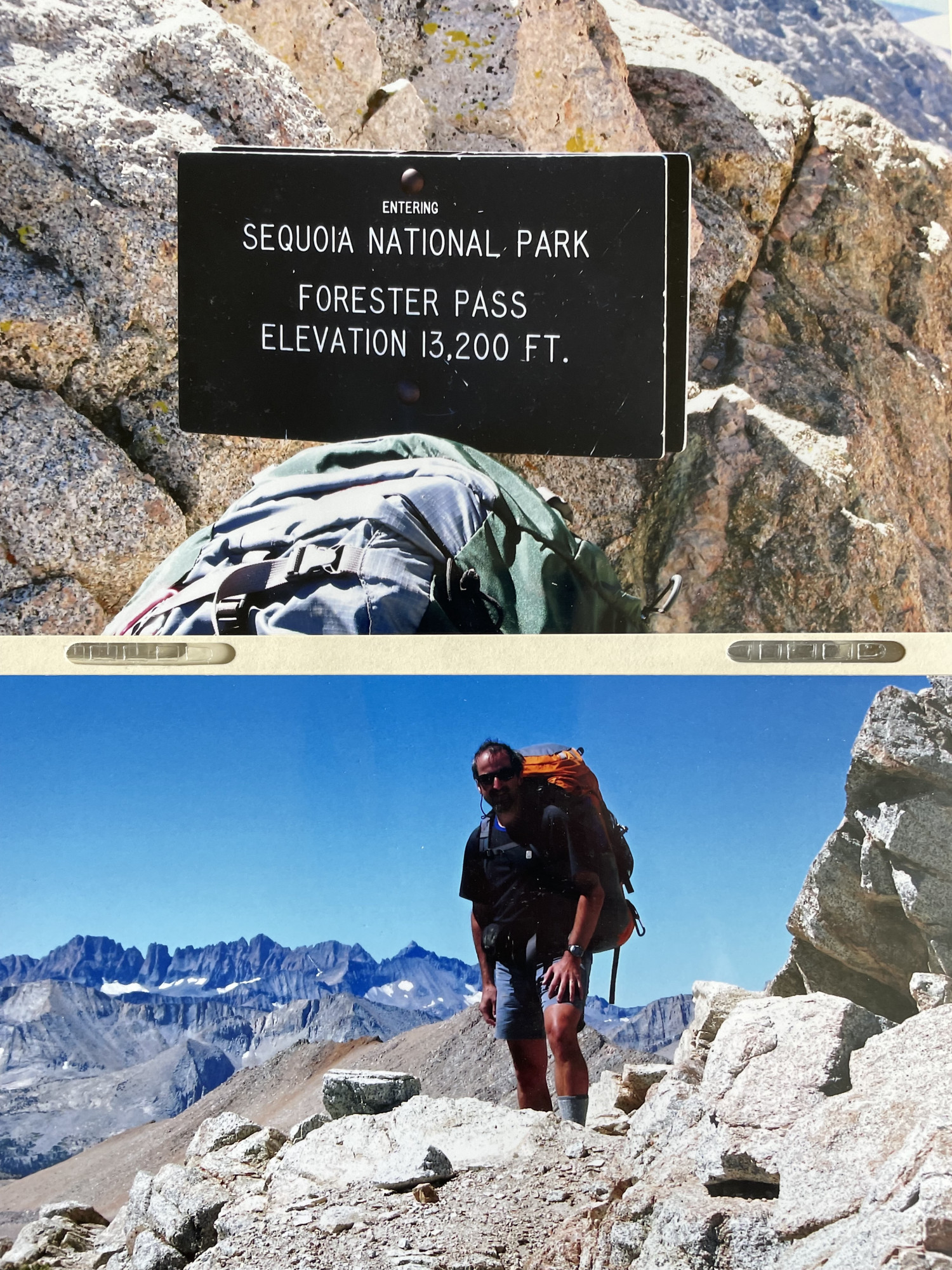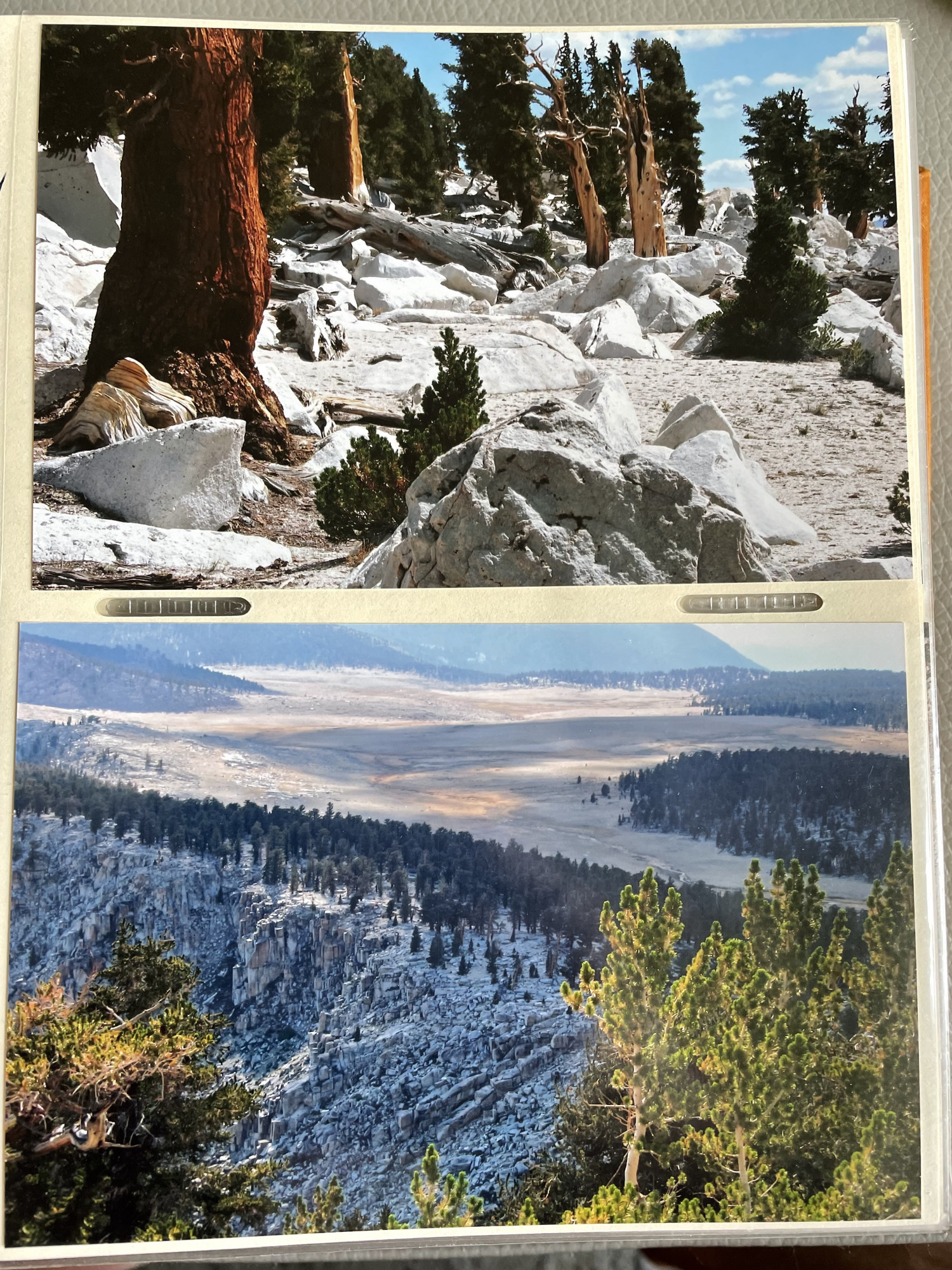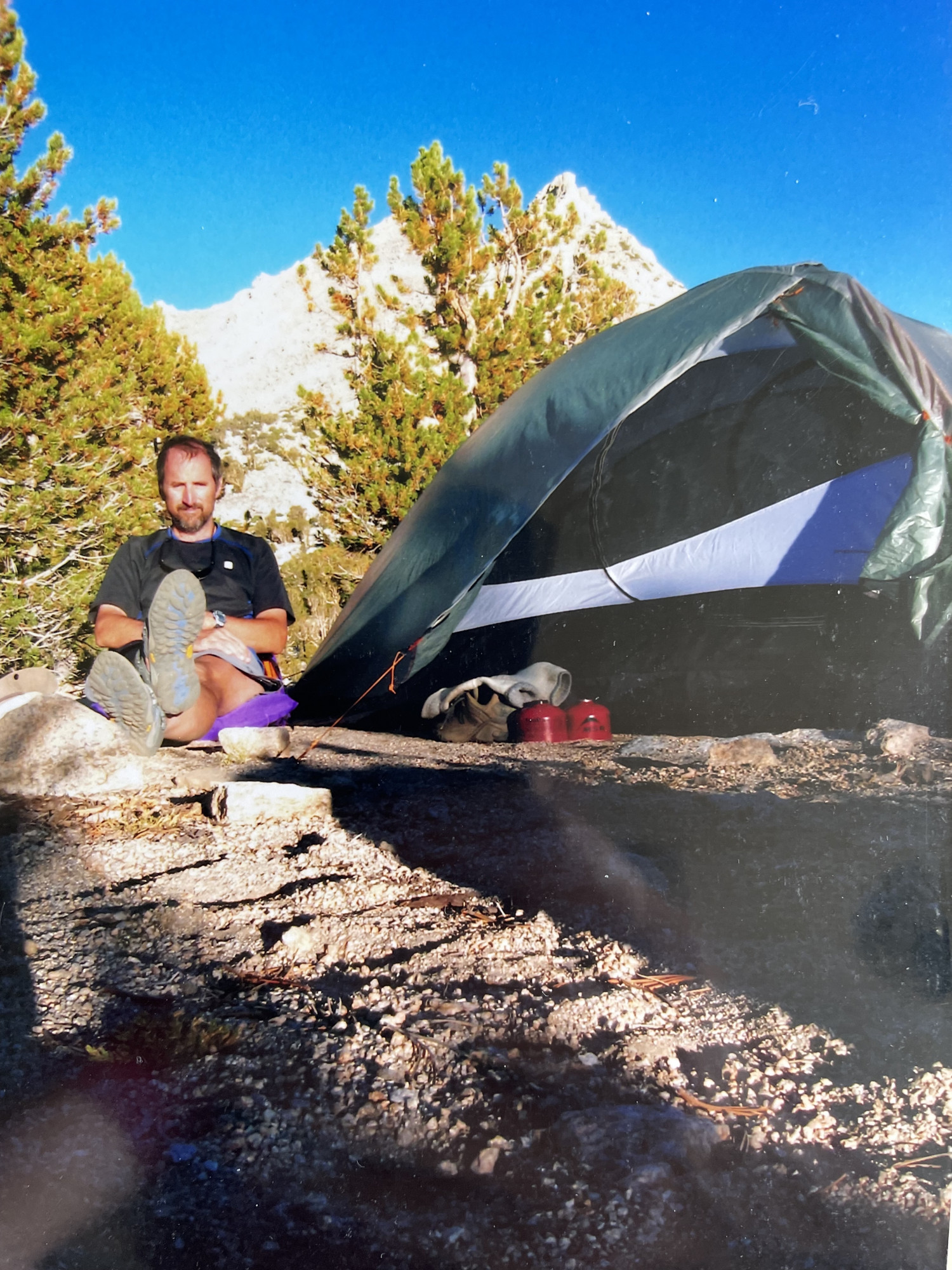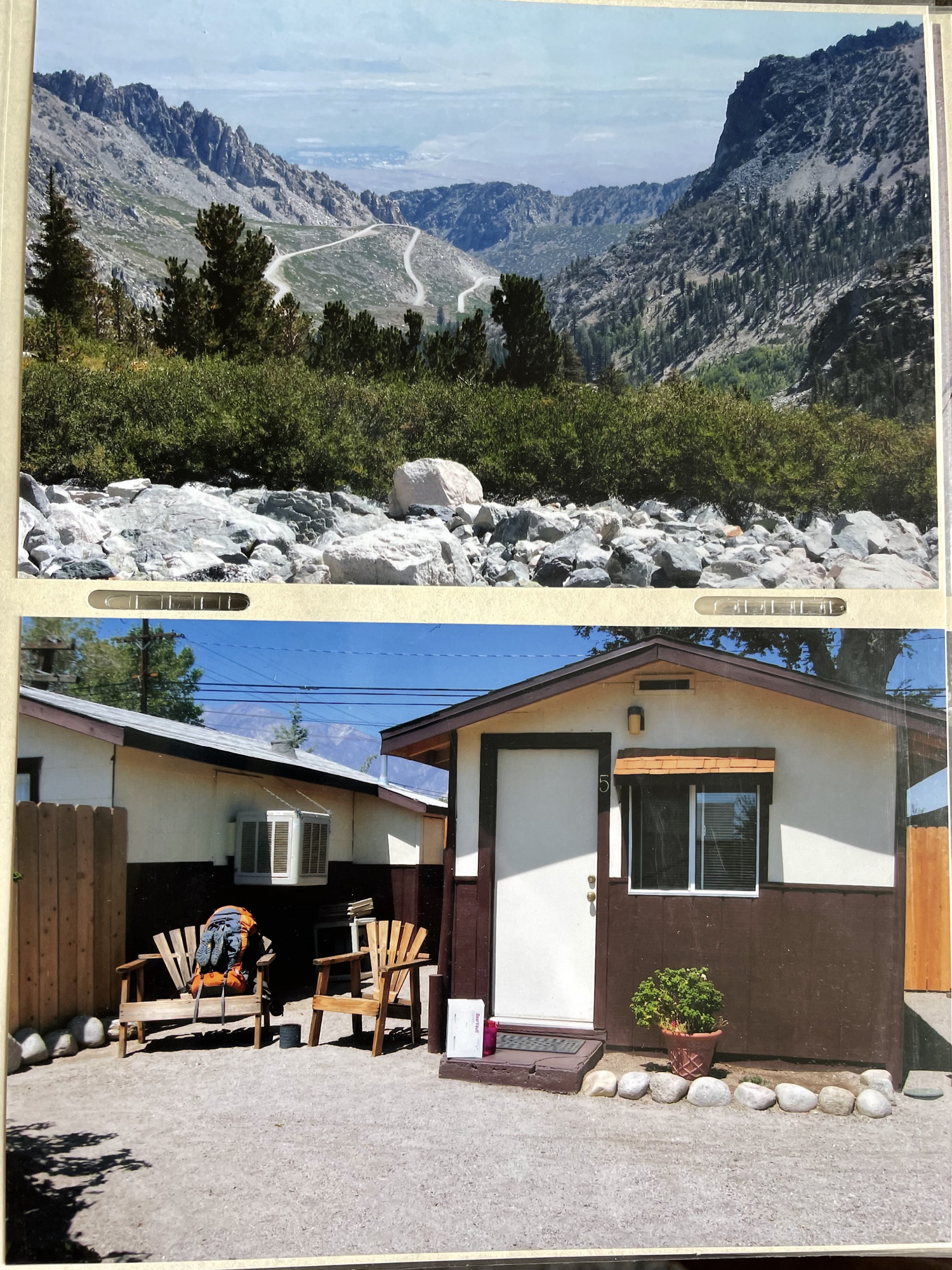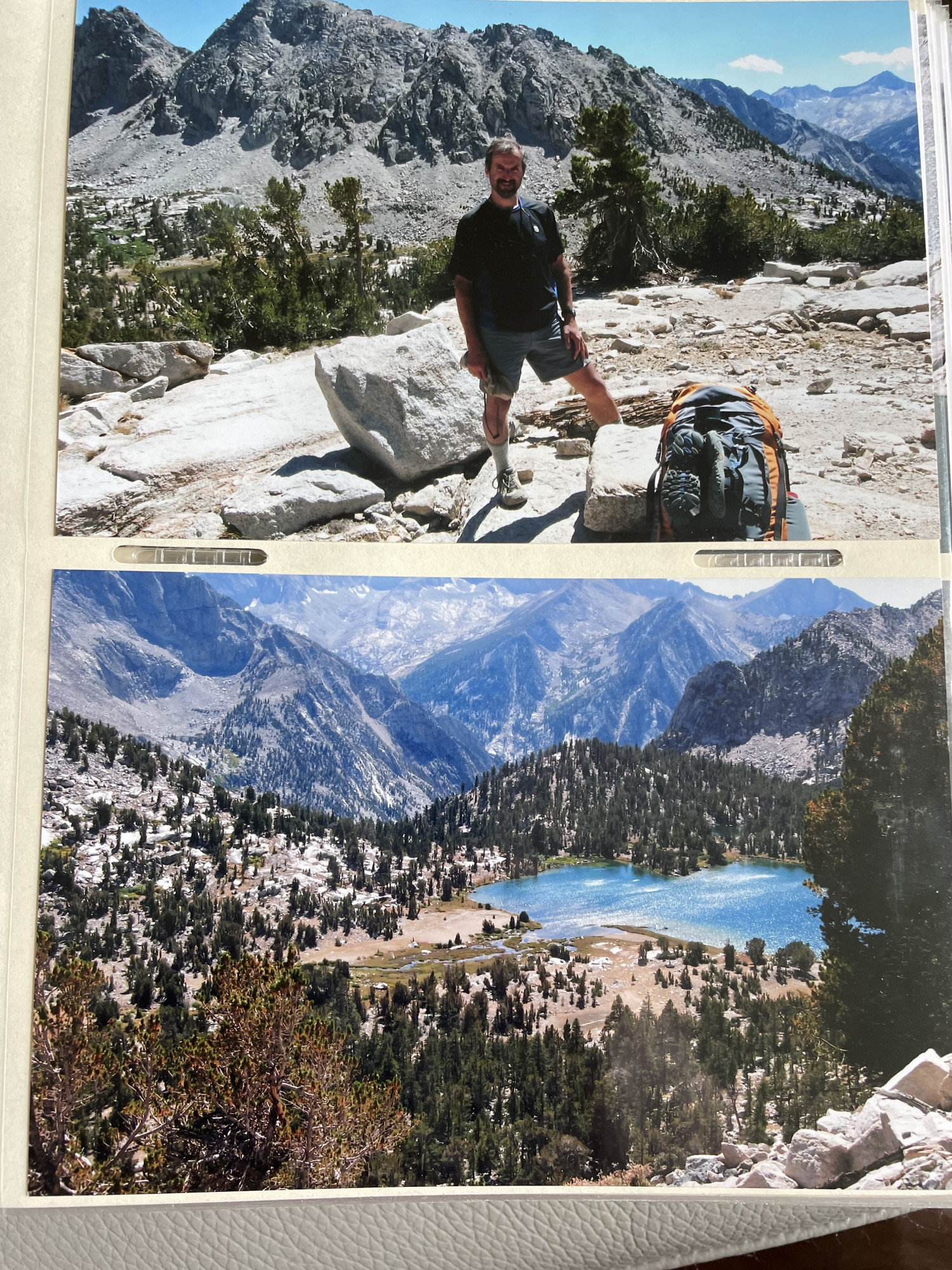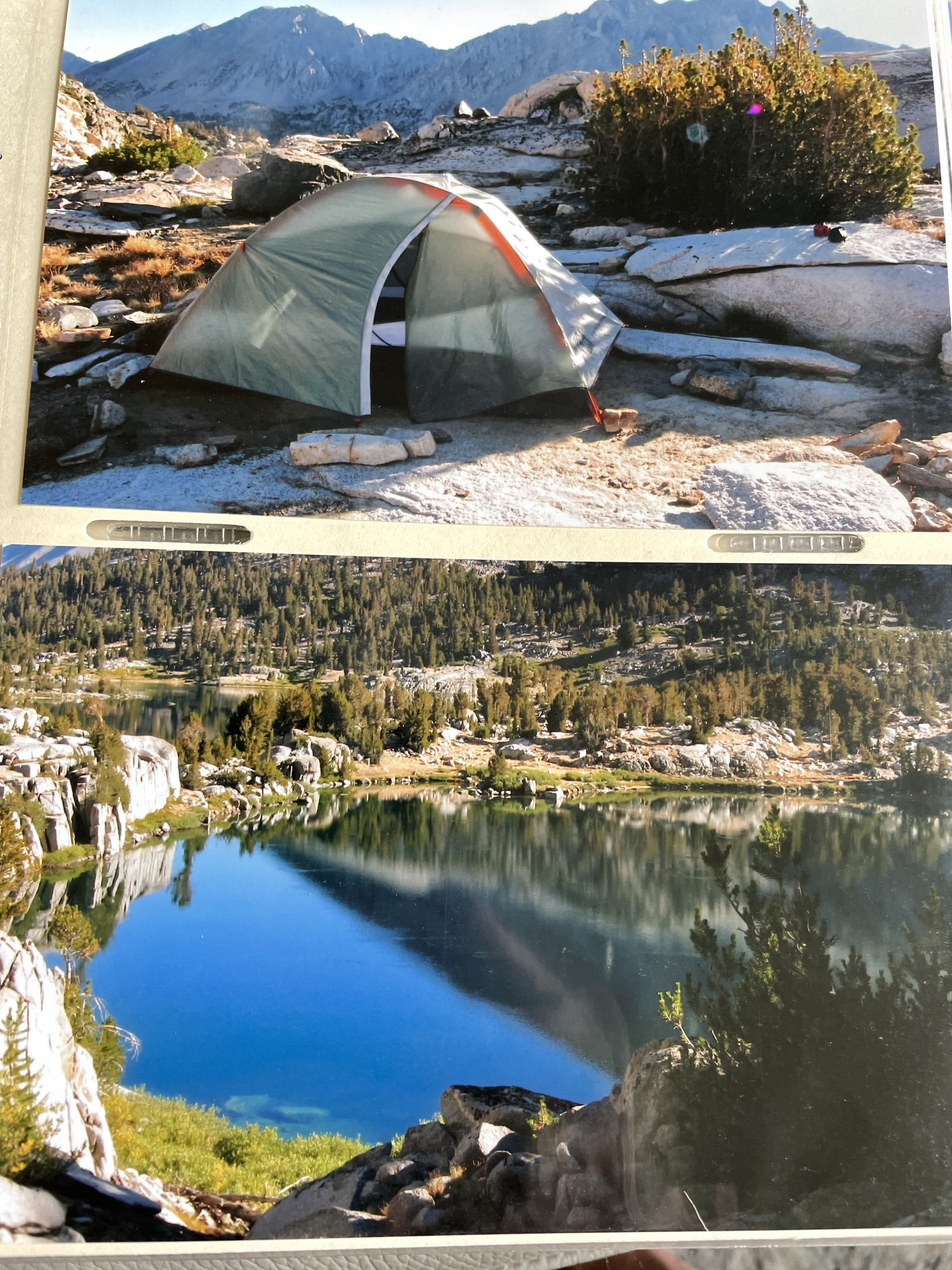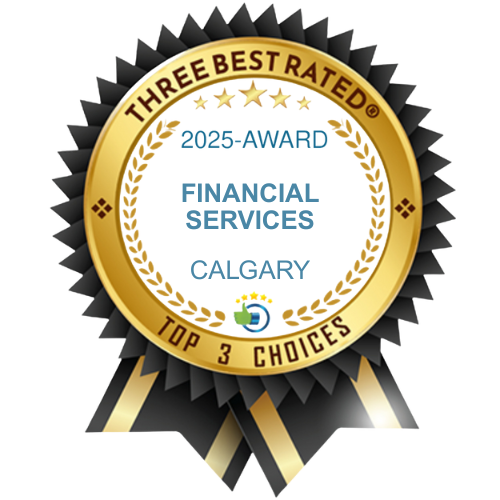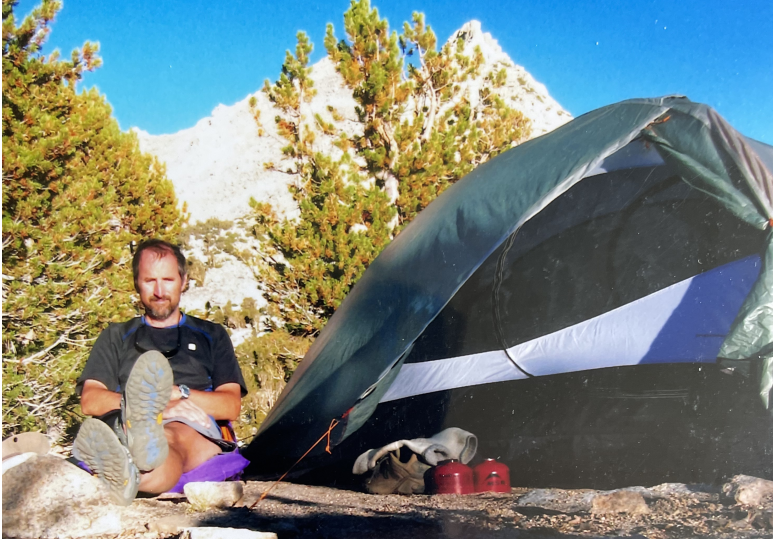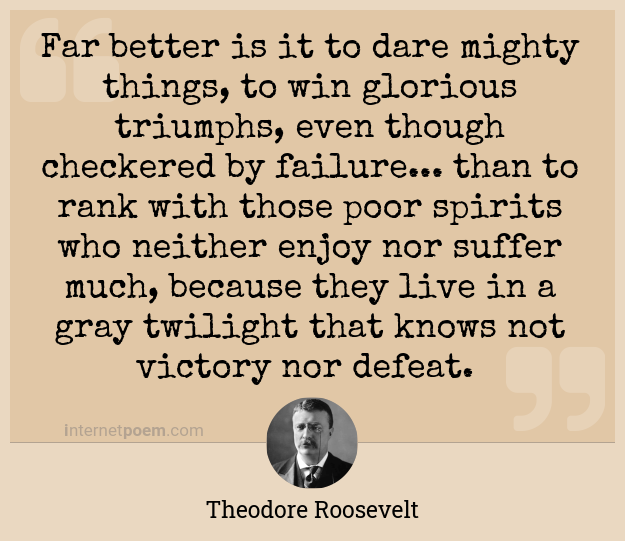
I have always admired those who attempt and achieve great things far beyond what the average person does. Paul is one of these people. He appears to be an ordinary person and he has done some extraordinary things. Among the many triumphs of his life, one of his personal bests was an 18 day - 400km - solo hike along the Pacific Crest Trail in California. Sleeping in a pup tent, fending off black bears, eating dehydrated meals, traipsing through the wilderness alone; I mean this isn't everyday stuff for the average person.
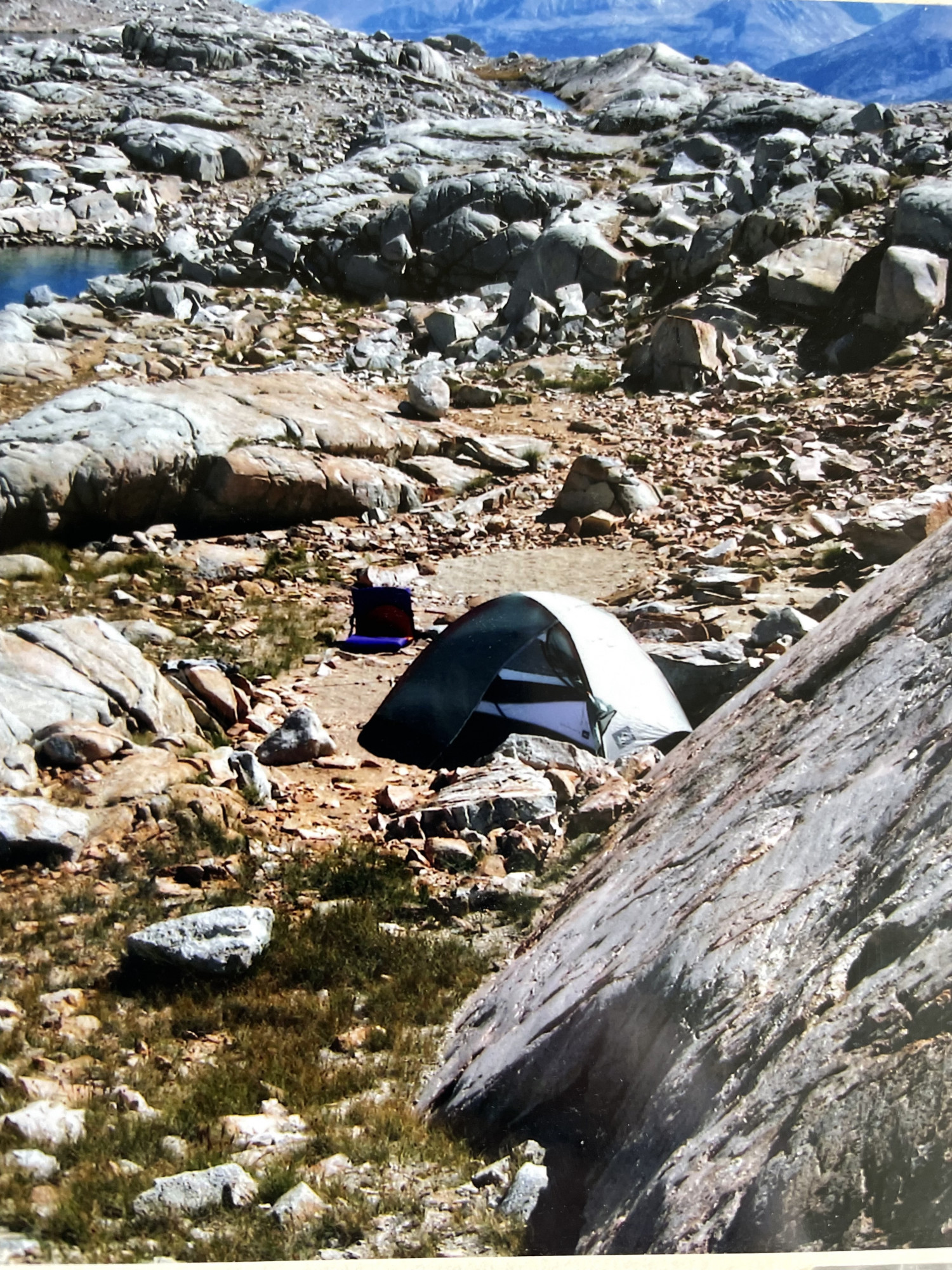
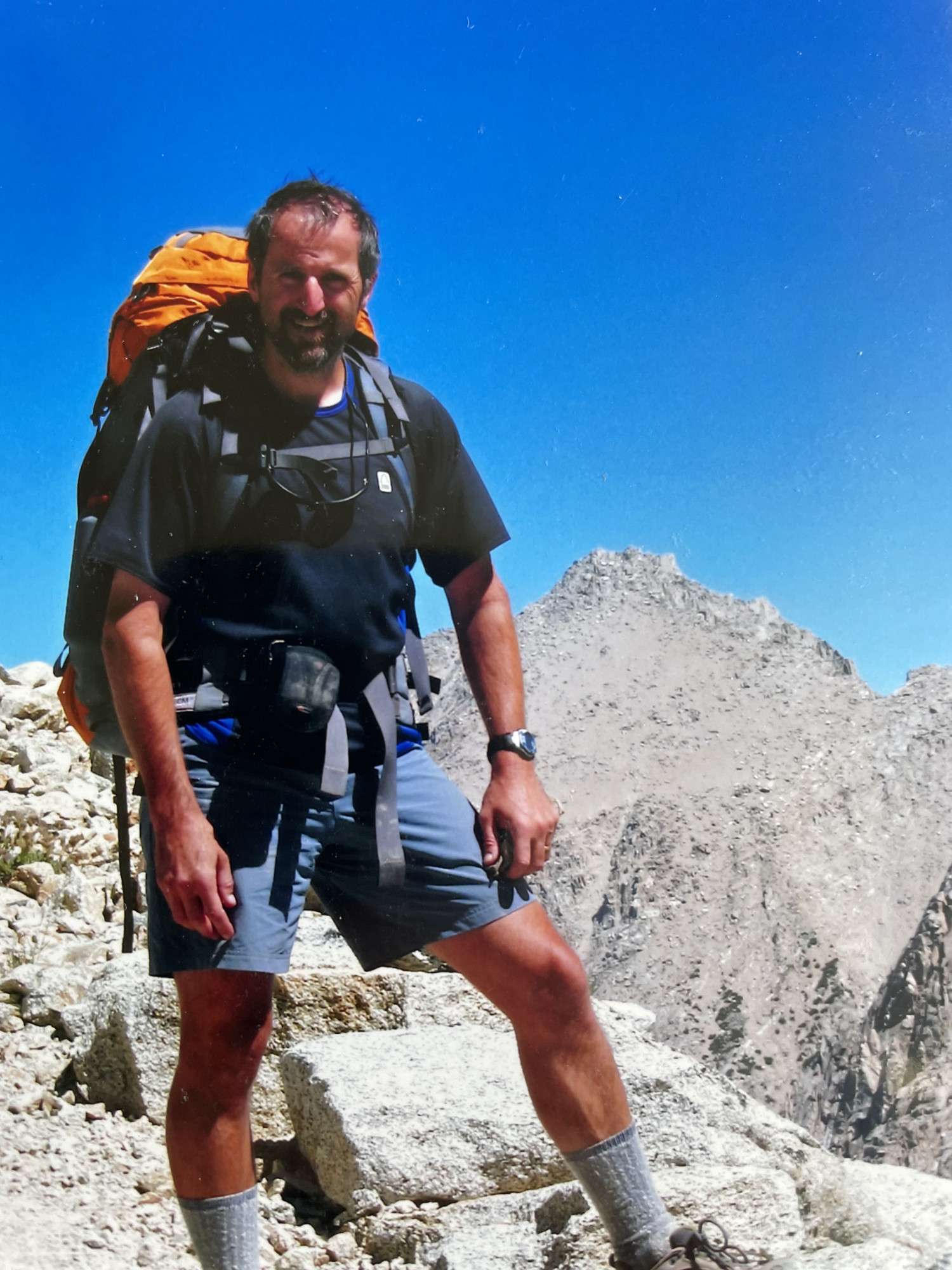
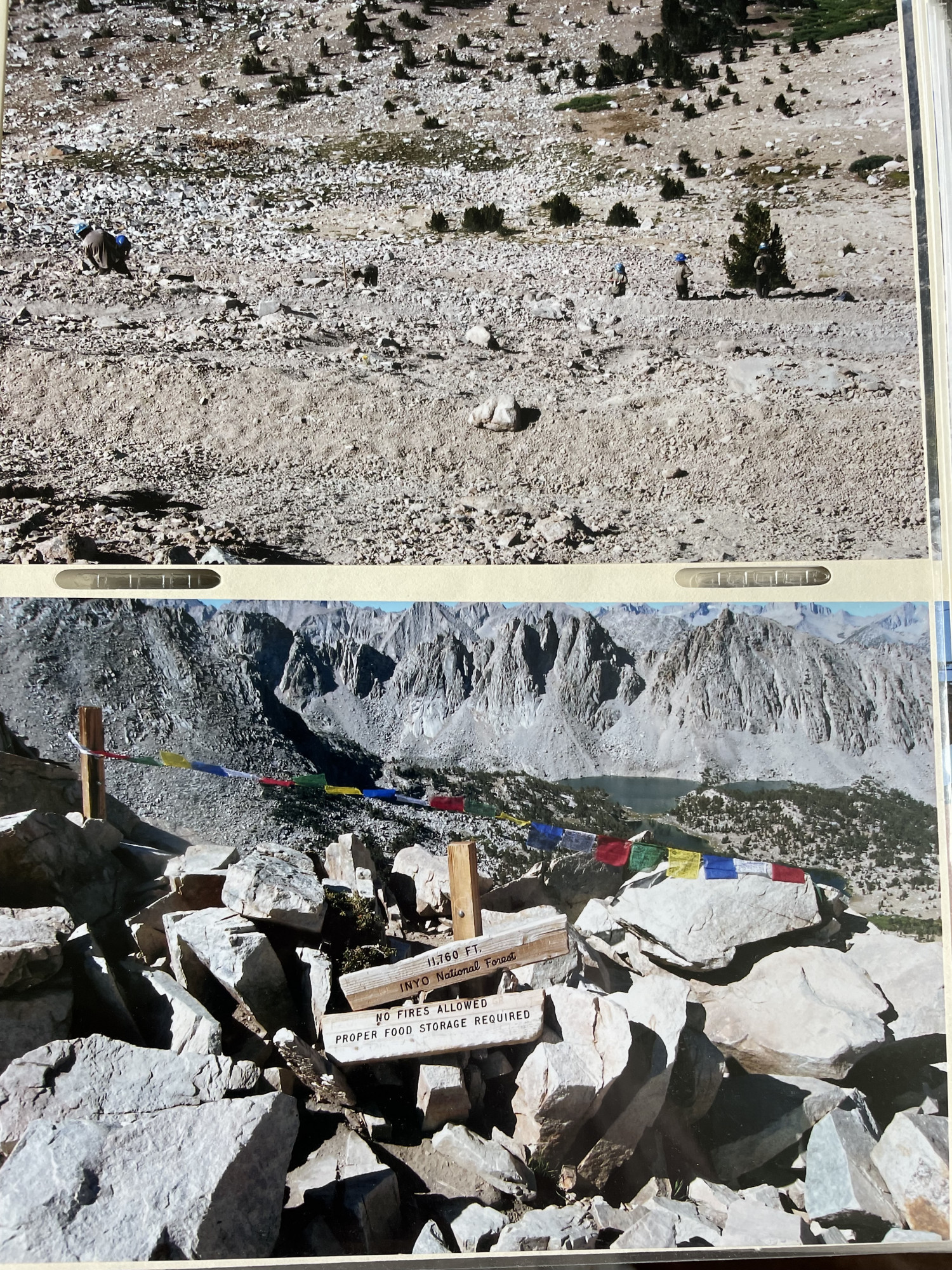
Paul, either by himself or with his wife, Susan, has travelled, by foot or by bike, on many unique trips. In fact, he didn't get a driver's license until he was 29. Together, on a tandem bicycle, they have toured the south of France and many trips throughout Europe. They are planning to head back to Europe in 2022. Paul has pretty much cycled the entire coastline from Astoria, Oregon to San Diego, California.
When Paul was 20 years old, back in 1981, he packed up his road bike, got on a train to take him from Montreal to Sackville, NB, and then spent 2 months riding around Atlantic Canada. He rode 6000 km on his bike that summer, sleeping in a tent on the side of the road and living off $5/day. In fact, he passed through my hometown of Deer Lake, NL. Most people will not travel 6000 km on a bike throughout their entire life! When Paul arrived back in Montreal in the Fall of that year, he scrounged up some more money and left for another 2-week journey down to Vermont, USA.
What goes into planning a 400 km solo wilderness hike in the mountains of California?
There's a lot of planning. Besides driving from Calgary to California he had to drive to the drop-off points in the middle of the hike where he could place additional supplies. You can't pack enough supplies for an 18-day hike. Then he had to drive to the final destination and park his car and then take a bus back to where he would begin the hike. There is packing a tent, sleeping bag, water filtration system, food, and cooking devices. All of this has to fit into a small light pack.
His journey took him along the John Muir part of the Pacific Coast Trail. Have you ever read the book, Wild, by Cheryl Strayed or watched the book-based movie featuring Reese Witherspoon?
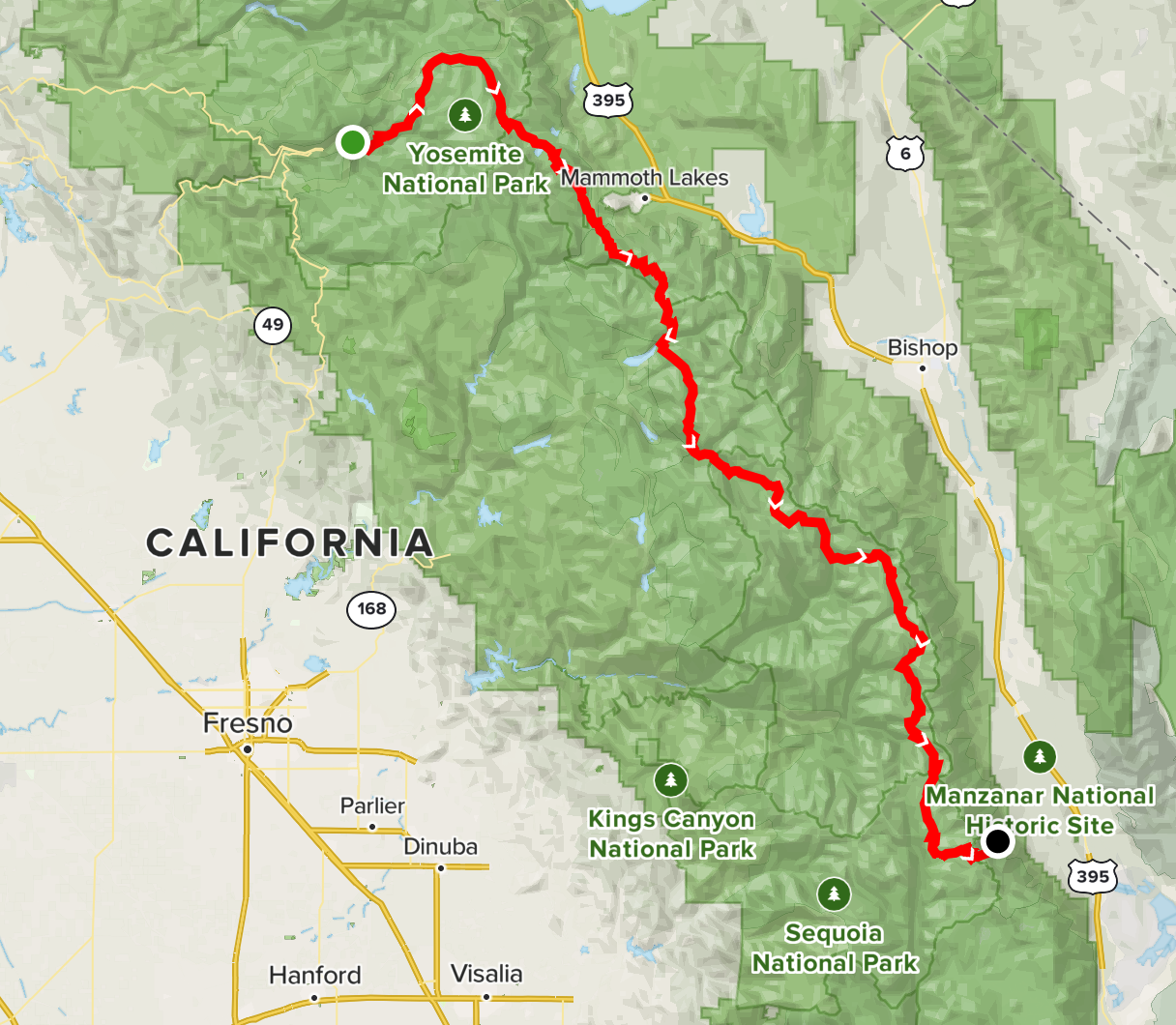
The backpack below is all that he had for the trip. The longest stretch was 8 days before reaching a refill station.
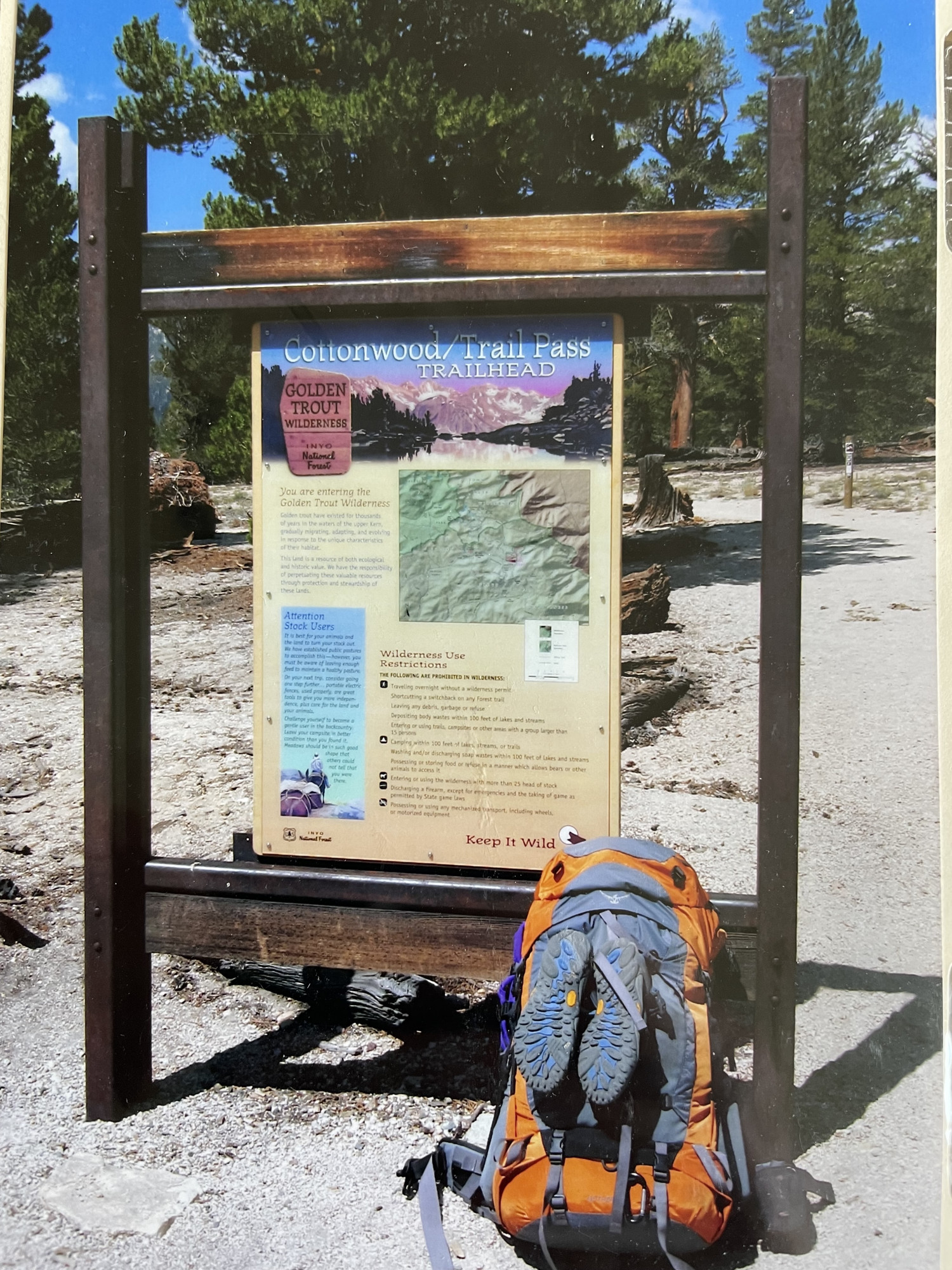
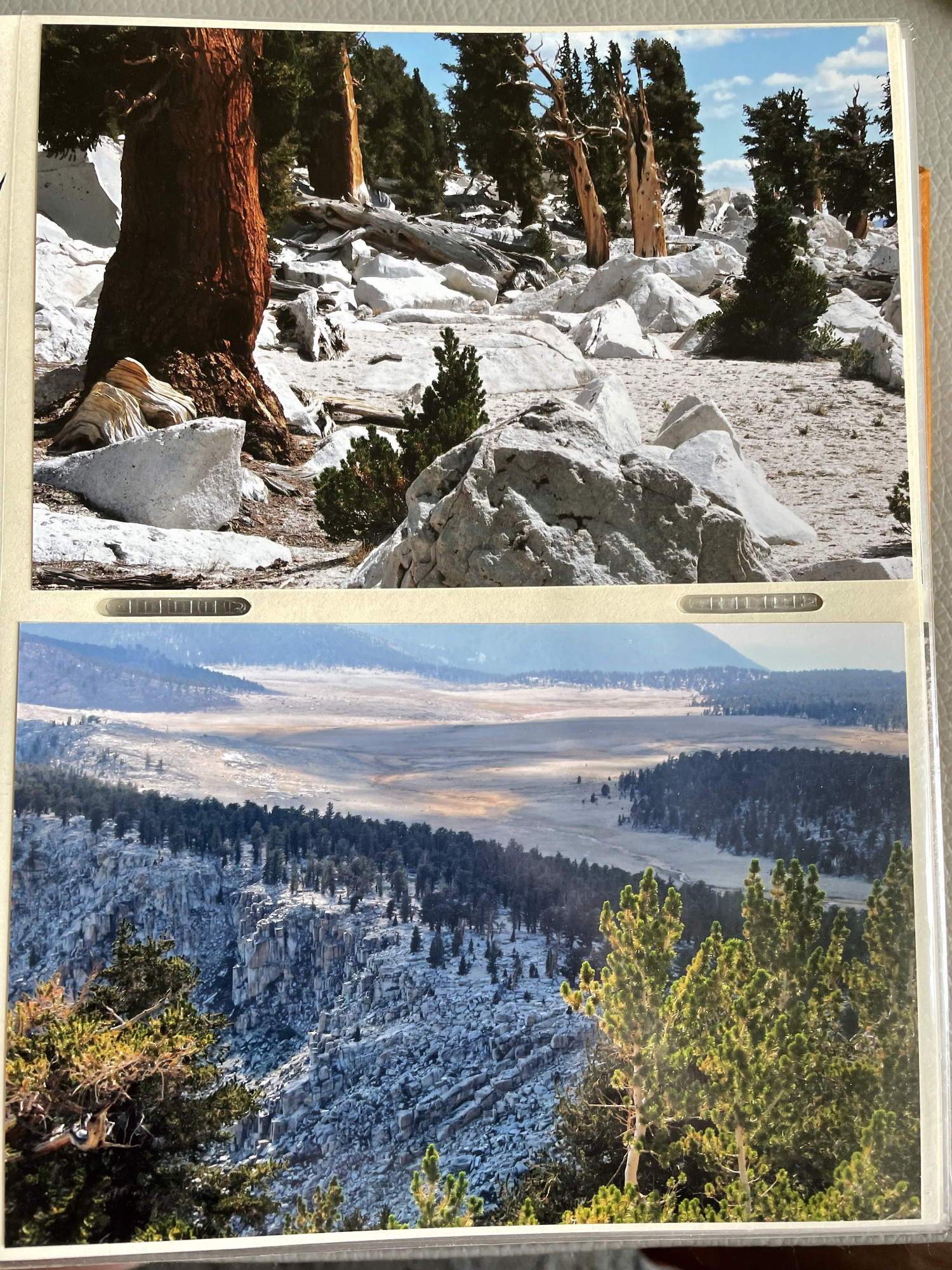
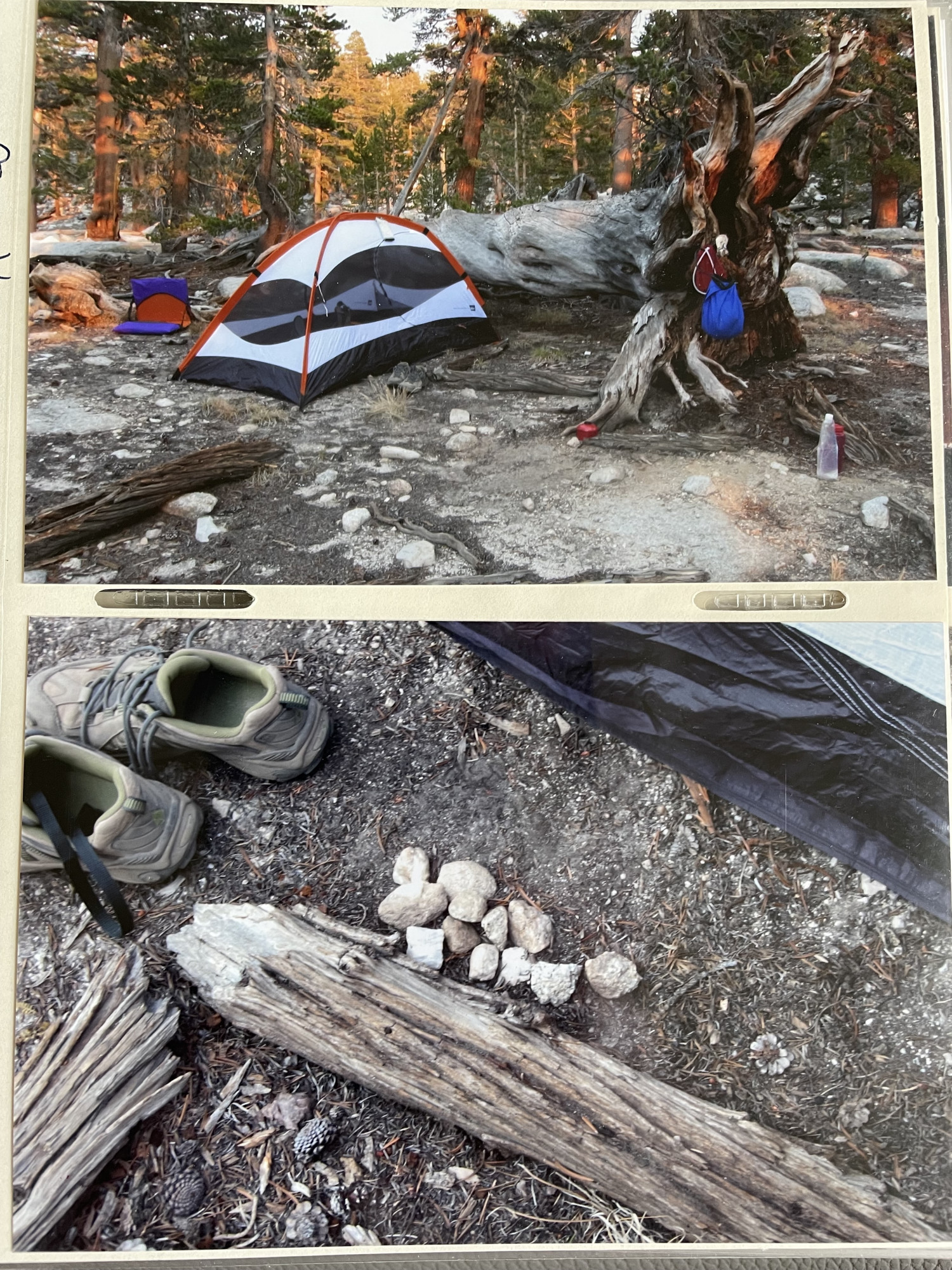
The pile of rocks:
At the start of the trip, someone advised Paul to gather some rocks and use them to throw at any bears that came by. On his first night, he gathered this pile, then looked at it and laughed to himself thinking “I’m not throwing any rocks at a bear!”
The second night of his trip a bear had come through his campsite and rummaged around, but since there was nothing to eat, it just left without incident. Paul didn't bother with the rocks any other nights. He points out that bears are looking for food and if there isn't any they will typically just move on. Also, it's important while doing this type of hiking to always keep your backpack and supplies stored away from the tent and also to do the meal preparation a distance away from the place where you plan to sleep. (Good tips)
Below is a refill station. Along with other pictures from the trip.
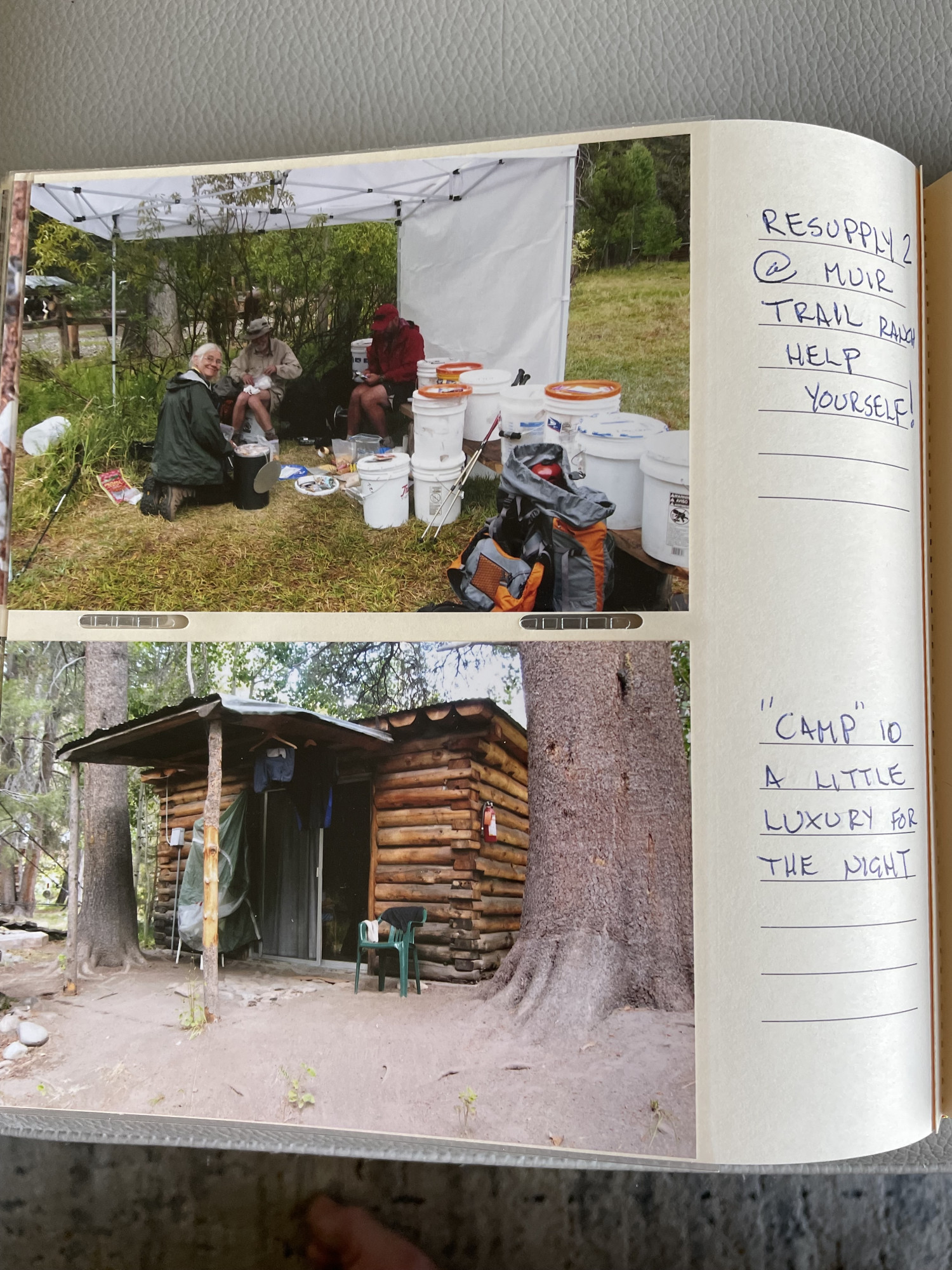
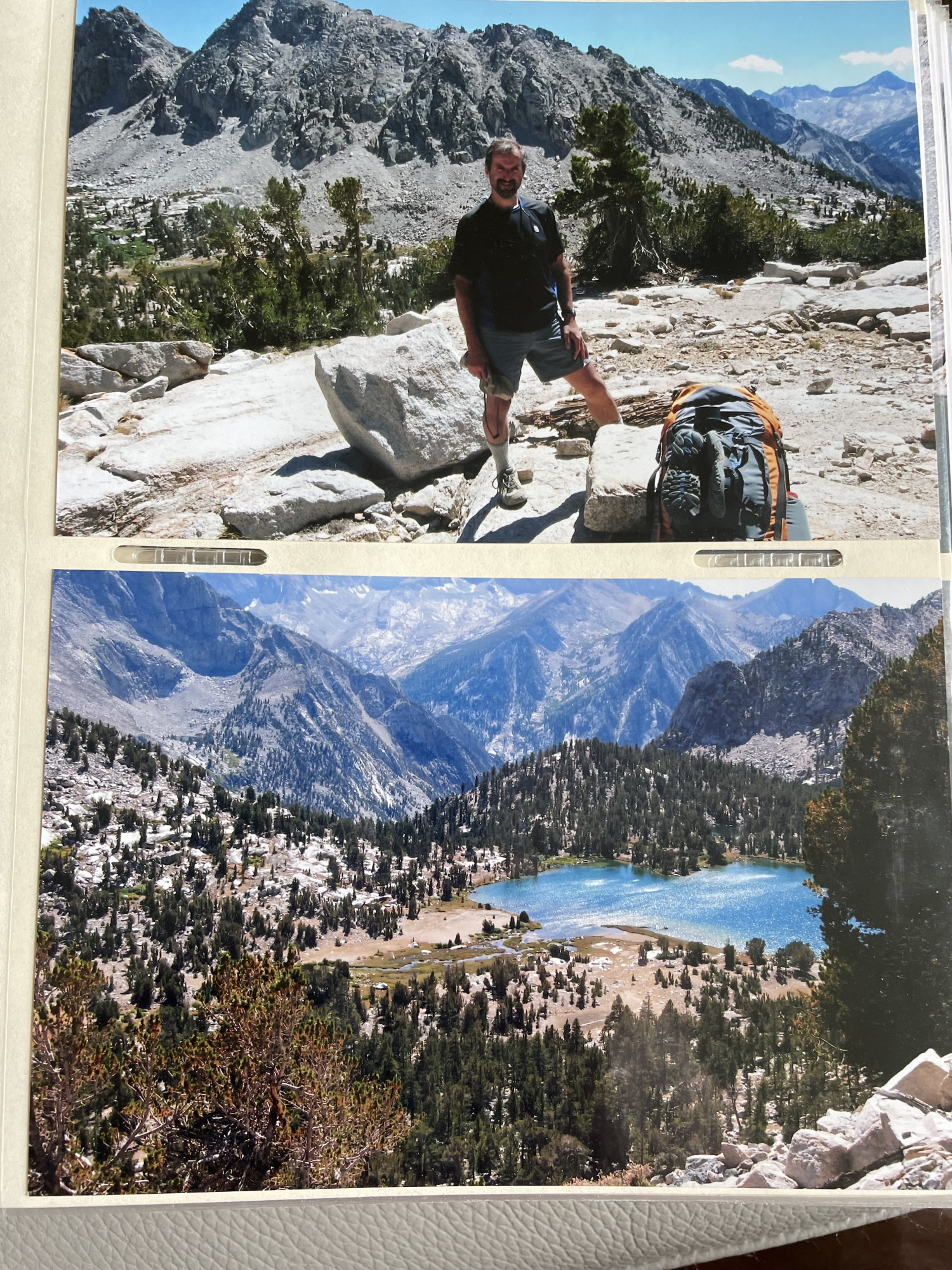
The highs and the lows:
It's more mental than it is physical. Paul says for every one bad day on an adventure there are 9 great days. Regardless of what your age is, attempt something adventurous. Go someplace new. Meet new people. See things that the average person misses because they spend too much of their lives on the path most travelled.
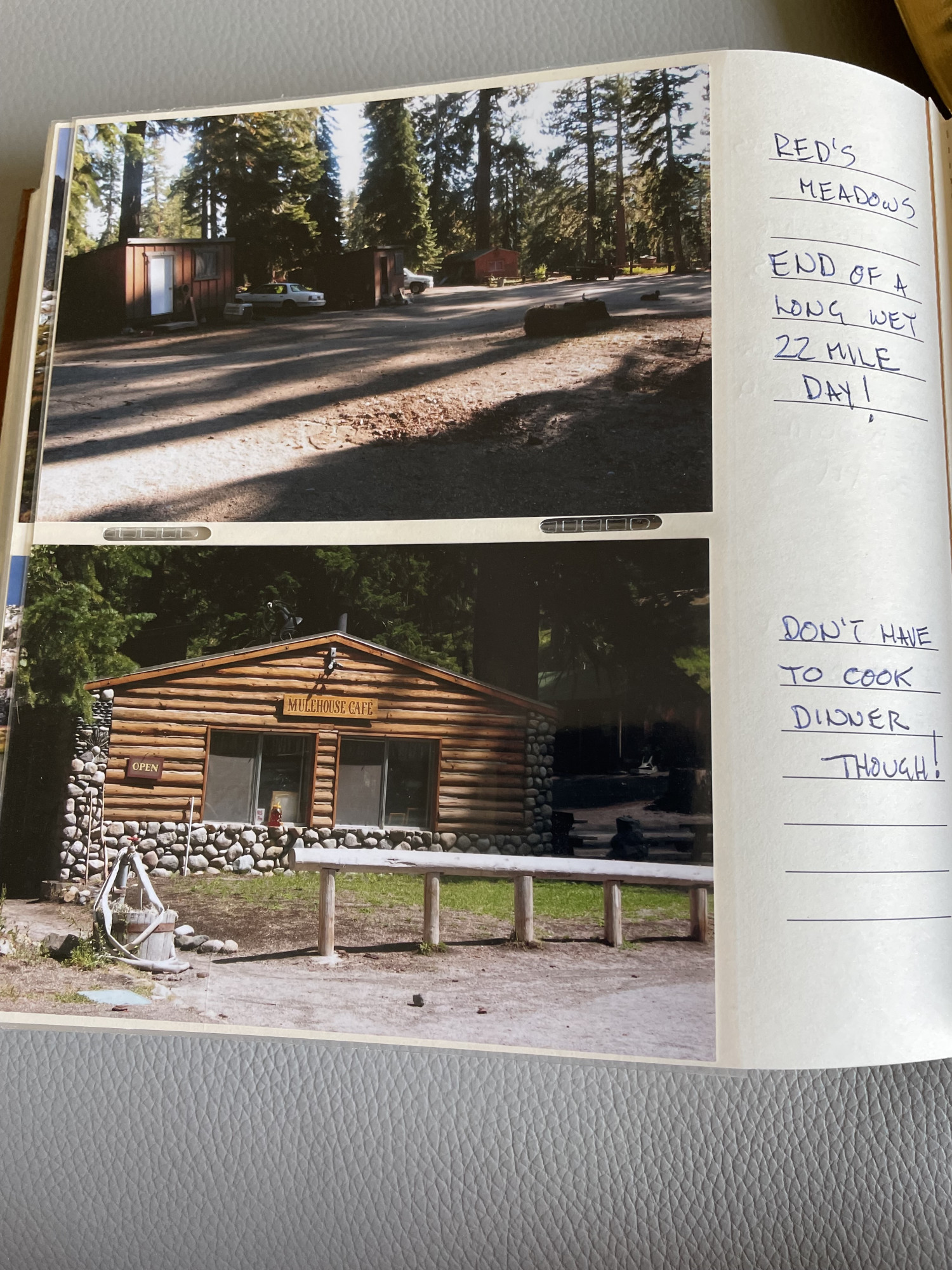
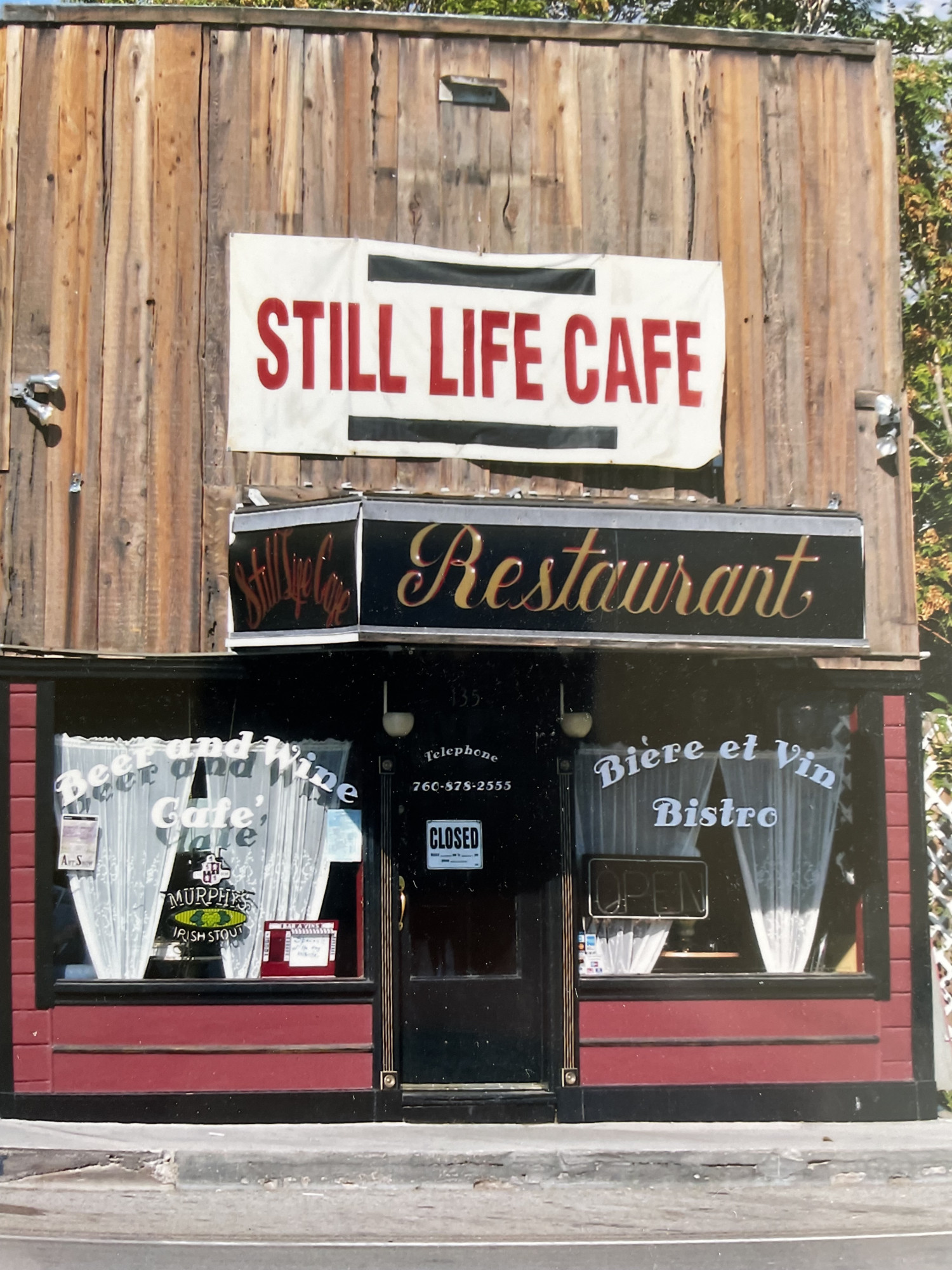
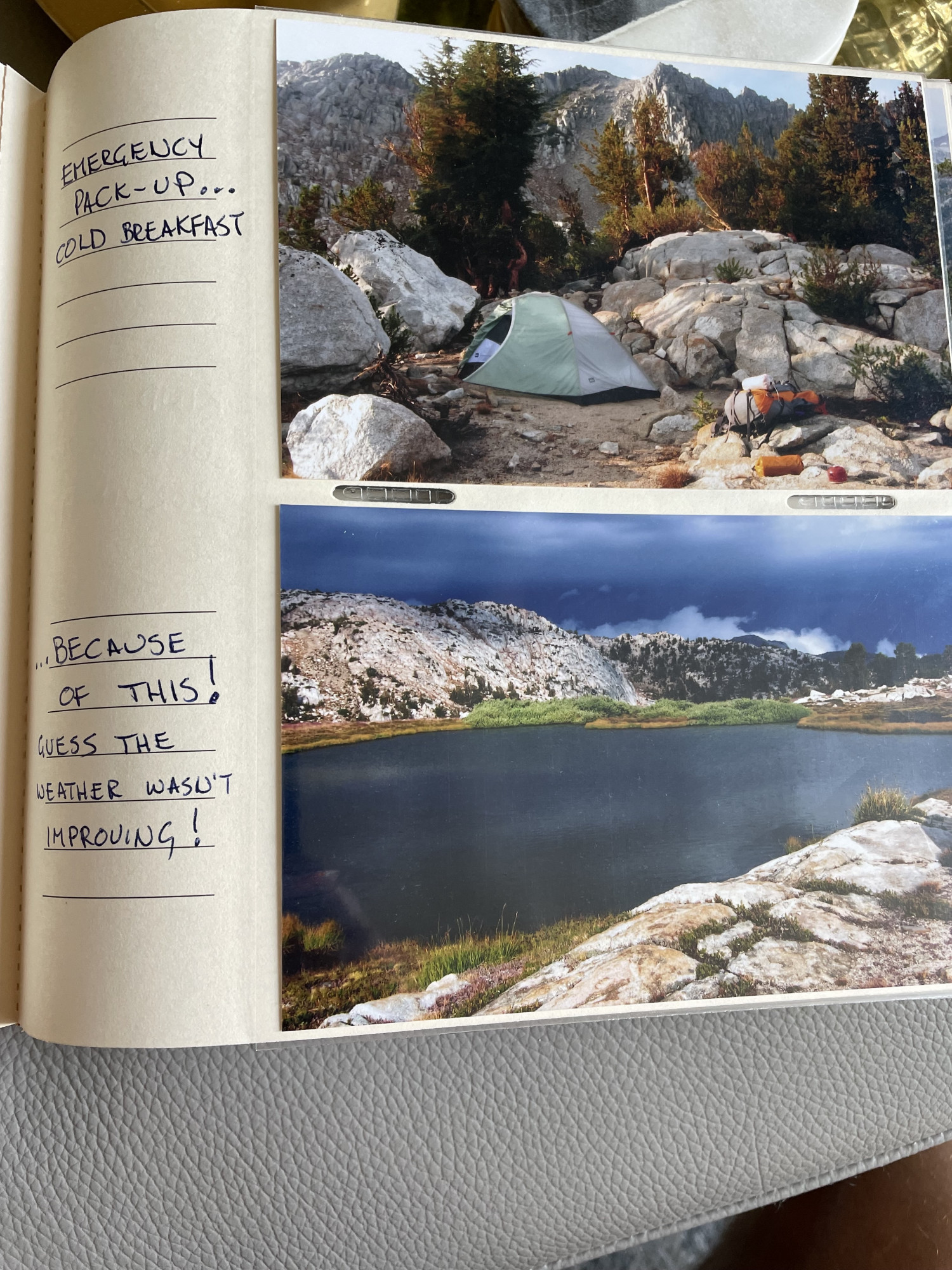
After spending 5 days on the trail Paul hiked out to his first resupply and arrived at this small hamlet and was looking forward to a hot meal at the Still Life Cafe, but the restaurant was closed that day.
Why did you do it? "It's good for the soul."
Would you do it again? Emphatically, yes.
What stands out in your travels?
The generosity and kindness of total strangers. He told about people inviting him to join in their seal flipper feast or inviting him to spend a night at their home; have a fresh shower and a meal. He and Susan are current members of an organization where touring cyclists can come spend a night at their home as they pass through our city.
This is what Susan, Paul's wife, had to say:
"I've always known Paul to be an adventurous soul. His biggest passion is the great outdoors. I remember back when we were dating, talking about how much we both enjoyed camping. Something we both grew up doing with our families. I soon discovered his idea of camping and mine were two very different styles. I'd never camped in the backcountry before where there were no toilets or bathrooms and I'd never traversed down a river in a canoe for a weekend, spending the night next to the river. These times were out of my comfort zone, but I was willing to try them with Paul. Our 1st-night camping in the backcountry, where I was crouched down by a tiny little camp stove waiting for my chef to cook me dinner, he presents to me this gourmet-looking hot dog - it was perfect, the mustard was beautifully swirled over the top. I couldn't have pulled that off in my kitchen! Then, to make that time even more perfect, he pulls out this strange contraption, that when assembled, was this amazingly comfortable lounging chair to sit on while we dined.
Many years later, he introduced me to cycle touring; and after 1 failed custom bike and a broken wrist later, it is something today, on our tandem, that I love to do.
Our newest adventure together is mountain biking. Once again, out of my comfort zone, and at the age of "almost 60" no less! He's showing me the ropes and taking me places I've never been. I'm still learning and very obviously nervous, but "there's no rush and you've got nothing to prove" are his words to me.
For Paul, nothing is too difficult with the right attitude and good gear. I am very lucky because we have done a lot together that most people never get a chance to experience in their lifetime.
Susan, what do you admire about Paul?
I admire Paul because, in his mind, we can do anything if we try. I can honestly say that I wouldn't have experienced anything that I have described above if it weren't for him. Most importantly though, through all our experiences together, there is no one I trust more to keep me safe and to put a smile on my face when we are out there and I love him dearly for that. - I do have to give him kudos though for pushing me when I wasn't sure I could do it."
From Paul:
What has motivated you to go on these types of adventures?
I find it hard to write about myself, but I'll do my best. For one, I get bored easily. I hate doing the same thing over and over. When things have been too much the same, my mind wanders and I dream about getting away.
Usually, my first thoughts come from reading a book, looking at a map, watching a movie, or seeing pictures of a certain area (I like looking at photography). When these catch my attention, I often will look into the area further. One book I read years ago was "As Far As The Eye Can See" by David Brill. It's a story of a guy that hiked the Appalachian Trail from Georgia to Maine. I've probably read that book 3 or 4 times. This and other books have planted seeds I guess. So when I get an idea, I've never thought I couldn't do that, it's more, do I want to do that?
I used to have a map of Banff National Park on my wall when I lived in Banff, & I highlighted all of the trails that I had hiked. When I saw a valley that I hadn't visited, I started thinking, maybe I should go there. A lot of times it's that simple.
What inspires you?
My motivation comes from the desire to see new things, the places I visit have to be visually interesting. I've always enjoyed cycling and hiking and I think I like the endorphins from the physical activity (subconsciously). It's tough cycling or hiking up a mountain pass, but you always feel great when you make it to the top. I've never been a "sit on the beach" vacation type of person. I always want to see what's around the corner. In 1992 I took a guidebook out from the library about southern Utah. I had never been there and didn't know anyone who had, but the pictures and trail descriptions inspired me to go visit. I was blown away by what I saw. I think I shot 20 rolls of film. When you're hiking down a canyon, you never know what's around the corner, so it draws you on. I've probably been back 20 times since then.
I asked you what are some things that have stood out to you and you said, “The generosity of strangers”. Do you have any additional memories/stories of the generosity of strangers?
It's often very small things. When you're on a bike tour, people are often interested in knowing why you're doing it. You're definitely more vulnerable, and I think people react to this (in a good way). I've been given lots of food, beer, etc... and offered a place to sleep on my solo trips by people I've met. On several occasions, people have invited Susan & me into their home and taken us out for meals just because they wanted to hear our story. The tandem bike is a real icebreaker, it seems to put a smile on people's faces. This has inspired us to open our home to cycle tourists through the Warmshowers Association.
- Alexandria in Luxembourg who invited us to stay with her for 3-4 days in 2002
- An American couple living in Pujols France who came up to us while we were sitting on a bench, took us out for lunch, then invited us to spend the night at their home in 2017
- On our first day cycling in the Netherlands in 2002, a family backtracked in their car to show us where the campground was, they gave us shower tokens & invited us over to their campsite to socialize.
- France 2017, at the end of a long day we were trying to find a campsite going around in circles, we asked a local, he invited us to his house and his wife offered us cold water (which we were out of), and he took an hour out of his evening looking up alternate campsite locations for us. (We had no internet or cell service).
- All the great Newfoundlanders who fed me and gave me Beer on my 1981 inaugural solo tour!
Give me a few words to describe the feeling after completing one of these adventures:
At the end of the John Muir Trail, I felt like I was walking on clouds. I had a big smile on my face for almost the whole day of hiking.
I've always enjoyed the planning of a backpacking or cycling trip. You feel the anticipation and as you get closer a bit of nervousness (don't know why, but I've heard that from others), but once the trip/adventure starts, everything just settles in. At the end of the trip, I feel pride in myself that I accomplished what I set out to do and that I enjoyed doing it. Of course, not all trips end that way, but most do. Sometimes there's just a little too much rain, or the roads are a little too boring to be cycling solo. But they're always memorable.
Susan always says she knows when I've had a good trip by when she sees my little boy eyes at the end of it. I seem to have a new energy after these trips.
I've never thought that the things I do are unique (or out there). They're just a part of who I am and I'm just doing what I enjoy.
What's next?
I really need to get away (again soon)!
Thanks, Paul and Susan for inspiring us with your values and living a life most extraordinary and to its fullest.
Some concluding thoughts:
There's an adventurous spirit within us all. That spirit can often be easily killed throughout life, from hardships, work, an education system that is geared toward conformity. Family members with good intentions will try and keep us on the straight and narrow. Play it safe. Get a good job. Settle down. There is something within us that wonders. What if we could just go. Where would we go? What would we do? How far would we go?
Limiting beliefs and removing the barriers of possibilities.
Routine is death. Yeah, we all enjoy some routines as we age. Maybe our morning coffee and poop, but we can all easily fall into the same boring routines and it will suck the life out of us. We need to do something from time to time that takes us out of our comfort zone. Practice saying yes more often.
What's important about money? It enables us to do the things that bring us the greatest joy. Take time off to travel. Explore. See the world.
You can spend a lifetime gathering, but if you don't learn how to enjoy it then you lose. The two biggest mistakes retirees make is getting stuck in a rut or waiting too long to do something and then health issue crop up to prevent you from doing anything. Out of all of the emotions, we experience in life - REGRET - is the most punishing.
Put together a vision board for the kind of lifestyle you want to live and then start putting the plans in place to live it out.
Willis and Nancy Langford
Retirement Planners













